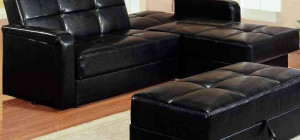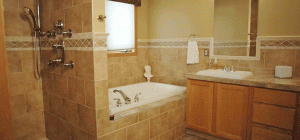 Keeping your home and family from an electrical accident is always a priority as a homeowner. Most households have a variety of different electrical systems and appliances to account for, all of which need to be kept in mind when securing your home. Read on to learn more about some of the best electrical practices when trying to keep your home safe.
Keeping your home and family from an electrical accident is always a priority as a homeowner. Most households have a variety of different electrical systems and appliances to account for, all of which need to be kept in mind when securing your home. Read on to learn more about some of the best electrical practices when trying to keep your home safe.
1. Don’t Overload Your Power Outlets
Keeping too many electronic devices plugged in at the same time is one of the most common causes of house fires. Outlets can only handle so much electrical current. If you’re using a power strip or extension cord to power multiple items at once, you can easily overload the outlet and cause serious issues with the breaker box. When this happens, a fire can start, which is why it is very important to be mindful of how many things you have plugged in at one time.
2. Do Not Mix Water with Electricity
While this should go without saying, it is something that is often overlooked. Many people have been shocked by touching appliances with wet hands while using electrical items too close to water.
When putting out a fire, you might think that water is the best solution, but this isn’t the case with electrical fires. Putting water on an electrical fire will only serve to fuel the fire even more. This is why it is important to have an easily accessible fire extinguisher in your home.
3. Install Ground Fault Circuit Interrupters (GFCI)
GFCI outlets are the safest and most recommended electrical outlets for rooms that have running water. These outlets are great for childproofing a room and can detect a power surge and turn off if the outlet gets wet or a foreign object is inserted into it. These outlets will disable if they are overloaded, and are a great option for maintaining adequate safety in any home.
4. Use Electrical Power Tools Safely
While these tools make taking on a big project a lot easier, they can also be dangerous if not handled properly. Here are some tips to use these tools more safely:
- Never stand in or near water when using a power tool that is plugged into an outlet.
- Make sure the outlet you’re using is strong enough and can support the correct amount of electrical current necessary to power the tool.
- Be careful where you place your extension cords to avoid any unnecessary accidents.
5. Practice Proper Electrical Cord Safety
When dealing with multiple extension cords, it is important to consider the following things:
- Extension cords are designed for short-term use and should not be left plugged in for an extended period.
- Keep your cords away from any pets that might chew them. This can create a safety hazard.
- Do not abruptly pull an extension cord from the outlet. This can damage the cable and the outlet.
6. Be Careful When Drilling or Nailing Walls
If you’re in the process of renovating your home, try not to damage your walls too badly. Too much drilling or nailing into a wall can result in damaging your internal wiring. Make sure to know where your wiring is before drilling or nailing a wall.
7. Fixing Appliances
If you aren’t experienced in repairing appliances like refrigerators, or range ovens, you might be better off calling a professional to repair the appliance for you. Not knowing what you’re doing can lead to an electrical accident or fire, which is why you shouldn’t risk repairing something you aren’t familiar with.
8. Light Bulbs
Light fixtures will have recommended wattage requirements that you can usually find outside of the socket. If you place the wrong bulb in an electrical socket, it can quickly overheat and cause a fire.
9. Don’t Ignore Electrical Issues
To avoid an electrical emergency, make sure to be alert to anything unusual happening with your electrical system. For example, if you notice a warm outlet, that could be a sign that something is wrong. Breakers that are tripped are also another indication that there could be something wrong with your system. And finally, make sure to take note of any flickering lights as this is also a sure sign that something isn’t right.
10. Outdoor Electrical Safety
It is important to make sure that your outdoor electrical setup is safe. Power lines are dangerous and it is important to keep any items that might be close to the power lines far away. Another thing you should be careful about is digging in your backyard. If you’re tackling a new gardening project, you might want to be careful how far you dig so as not to dig up any underground power lines. Make sure that your exterior lights are safe and take note of any flickering or burning smells coming from the lights. Additionally, you should be mindful of the types of extension cords you use outdoors.
Summary
Having gone over the major considerations you should make for electrical safety in your home, we hope that you found this article informative. Electrical safety is often overlooked and can lead to major electrical emergencies if not attended to. If you require a professional electrician in Melbourne, then look no further than Service Today. Our team of expert electricians can help you with all of your electrical needs.




![Are You a Secret Hoarder? [Infographic]](https://lerablog.org/wp-content/plugins/wp-thumbie/timthumb.php?src=http://lerablog.org/wp-content/uploads/2014/11/Nation-of-Clutter-IG-v21.png&w=300&h=140&zc=1)


